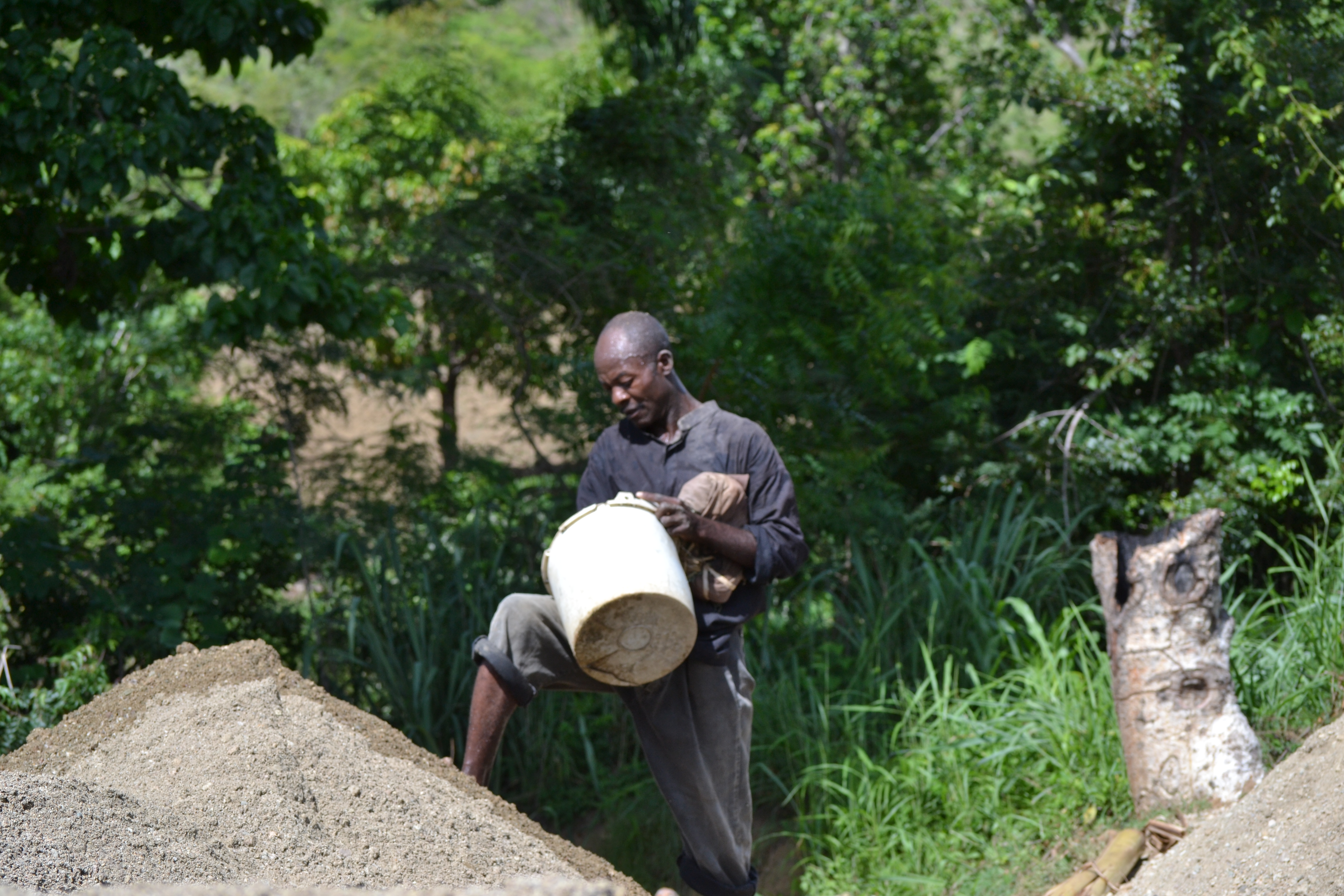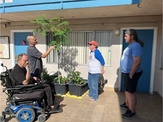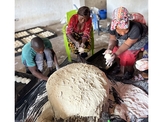One Great Hour of Sharing
PDA Recovery Efforts Help Haitians Thrive in New Communities
The 2010 earthquake that devastated Haiti and changed it forever also set Andral Estes’s life on a radically different course.
Estes lost his home and career in Port-au-Prince, Haiti’s capital city, and moved to a rural community on Haiti’s Central Plateau. He now makes his living as a small-scale farmer, a far cry from his former occupation in the insurance industry.
He said having a good education helps him navigate his new path, and he and other earthquake survivors see education as key to Haiti’s future.
In his new community, which was built with help from One Great Hour of Sharing gifts, Estes is a leader. He and his neighbors, who are also earthquake survivors, fled to the safety of the Central Plateau, which was largely unaffected by the temblor. In Port-au-Prince and the surrounding region, an estimated 300,000 people lost their lives.
Residents of the newly constructed community knew little about farming when they moved there, but Estes led them to embrace their new circumstances. He credits his education with giving him the skills needed to adapt to a profoundly different life.
“I look back at the earthquake of 2010 and think that If I hadn’t gone to school, my life would be much more difficult than it is now,” Estes said. Concern for their children’s future led earthquake survivors living in the Central Plateau to make building a school a top priority. Haitians will never thrive without a good education, Estes stressed.
“In Haiti, if you don’t have an education you are like a dead person,” he said. “This is why the school we have in this village is the most important thing to us after the roof we have over our heads.”
Presbyterian Disaster Assistance (PDA), supported by One Great Hour of Sharing gifts, helped Estes and his community secure livelihoods that made it possible to pay school fees for their children and buy uniforms.
With the help of Presbyterian congregations, his community constructed a school with classes through the sixth grade. The community recently added a room for the seventh grade.
“My dream is to keep expanding it to a high school and even a decent university, so our children don’t have to travel to other cities for an education,” he said. To attend high school now, students must walk five miles each way.
Estes and his neighbors live in an eco-village, a community designed to be socially, economically, and ecologically sustainable. Longtime Presbyterian Church (U.S.A.) partner Mouvman Peyizan Papay (MPP) worked with the residents to build the community and the school.
The residents provided most of the labor for their houses and the school, and the responsibility for school expansion is solely in their hands.
To acquire building materials, community members mine sand, a raw material for blocks, from a nearby riverbank and lug it up a hill in five-gallon buckets. They wash the sand to remove silt and stones, and then it goes to a block manufacturer. In exchange, the manufacturer furnishes the community blocks for school construction.
Estes’s eco-village is one of four on the Central Plateau that benefited from One Great Hour of Sharing gifts. Children from the 160 families in this eco-village are joined by students from the surrounding community at the school. “Everyone has a right to an education,” Estes said. “We are not going to reserve the school for only our children.”
On Thursdays, as many as 90 volunteers gather near the school to work fields that grow vegetables that feed the children. It’s easy to recruit parents to work because of their commitment to education and their gratitude for the school’s quality, Estes says. Its teachers are certified by the government, which also pays their salaries.
Students like sixth-grader Jessica Esten also take pride in the school and see it as critical to their future. “If we didn’t have a school, I wouldn’t feel good because I wouldn’t know how to read and write,” she said. She said she wants to “become a nurse so I can help my community.”
Estes is grateful for everyone who helped make his community and the school a reality. He dreams of gathering them in one room and thanking them. “I want to tell them what they have done for us,” he said.
Through One Great Hour of Sharing, Presbyterians across the United States have helped make a new life possible for Andral’s family and their neighbors. Most congregations receive the offering on Palm Sunday or Easter Sunday. In addition to PDA, One Great Hour of Sharing also supports the Presbyterian Hunger Program and the Presbyterian Committee on the Self-Development of People.
This was originally published for Presbyterian News Service on March 12, 2019.
read more stories:
participate with us
When we all do a little,
it adds up to a lot.
Each gift to One Great Hour of Sharing helps to improve the lives of people in challenging situations. The Offering provides us a way to share God’s love with our neighbors in need. In fact, OGHS is the single, largest way that Presbyterians come together every year to work for a better world. Join us!







